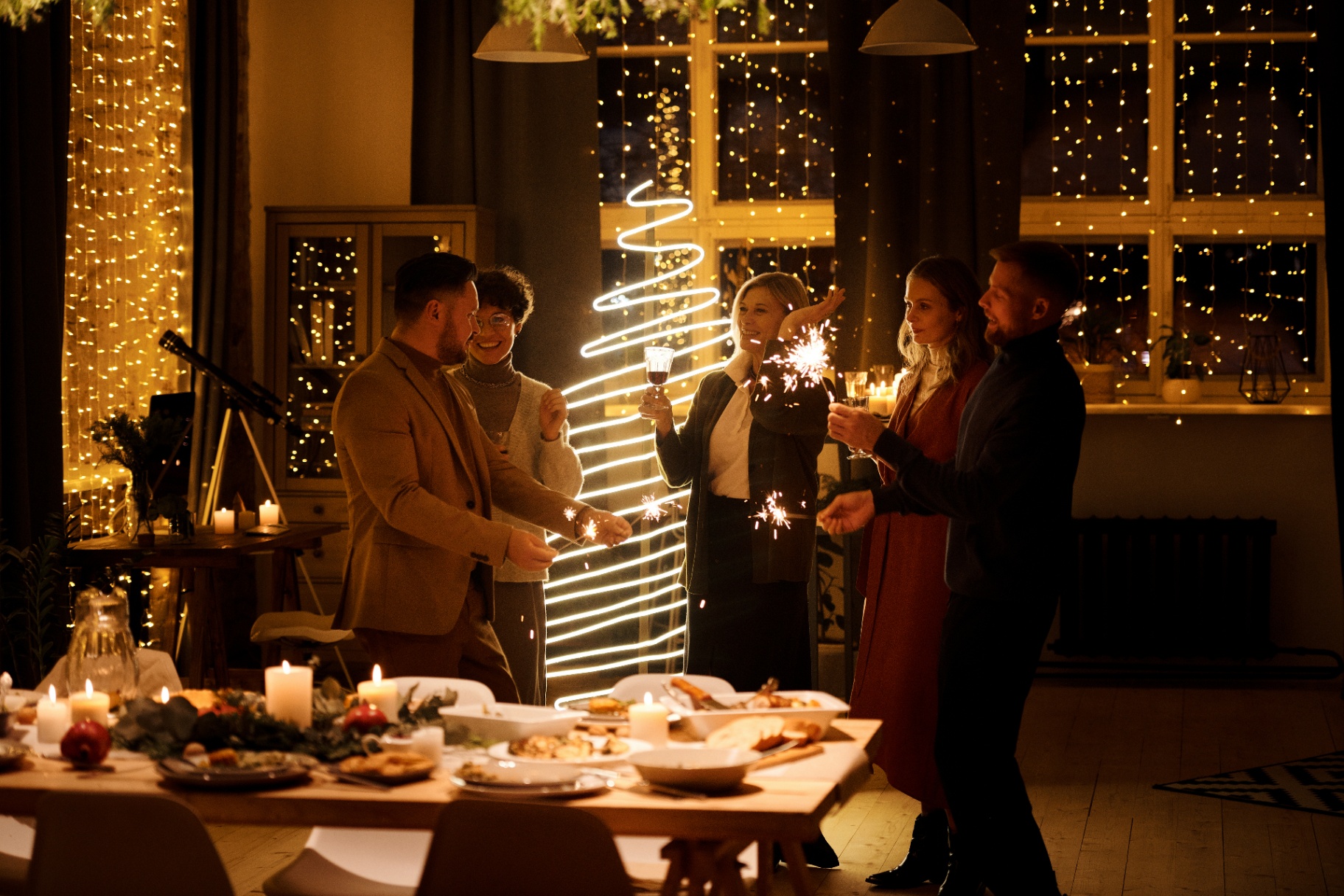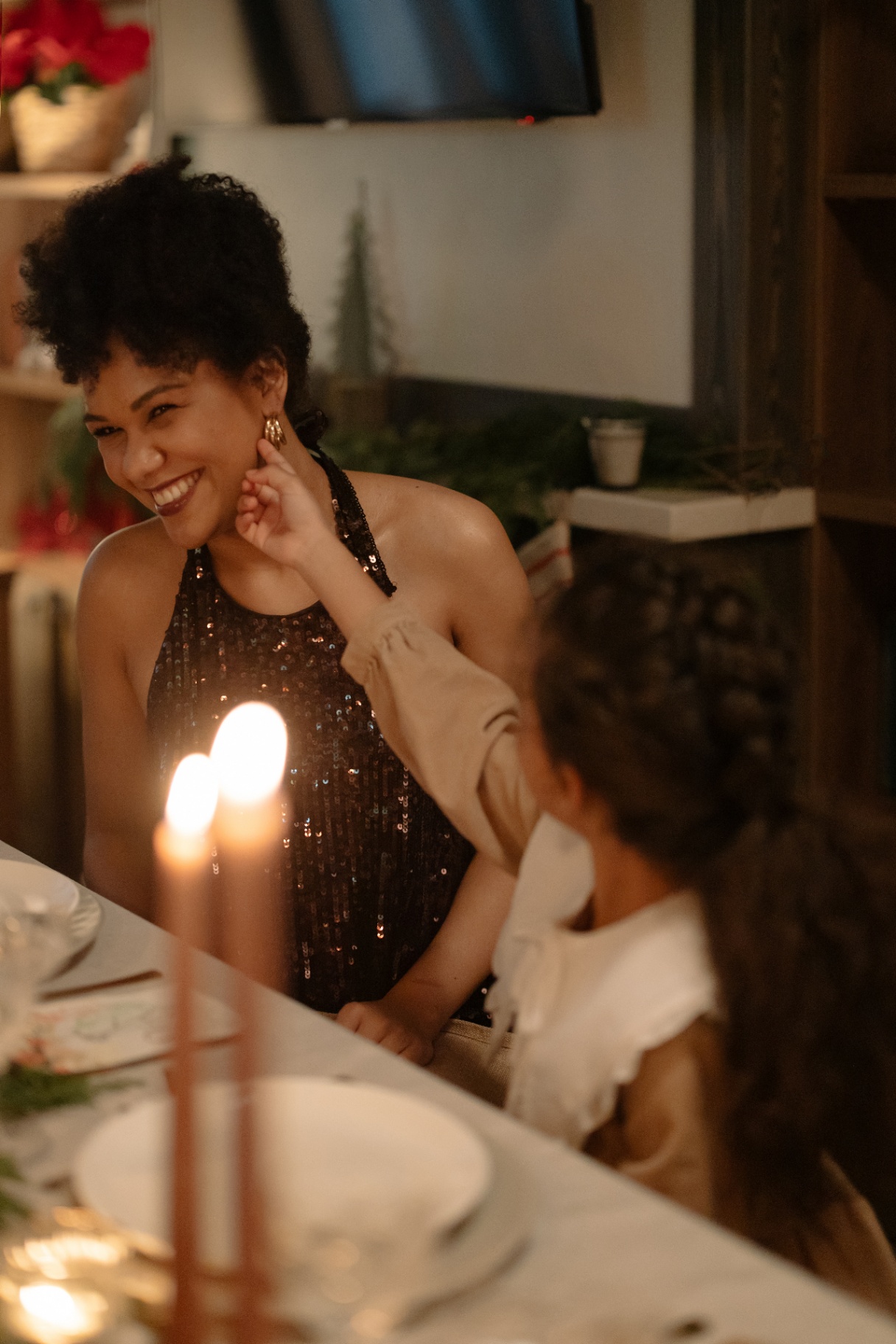Sobriety During the Holidays

If you’re working on your sobriety, the holidays bring a whole new set of challenges. If this is your first sober holiday, you may be increasingly aware of just how much alcohol is emphasized during this time and just how many triggers there are to navigate.
The good news is that it is possible to successfully get through the holiday season without a lapse and while enjoying yourself also!
So what’s the secret to a sober holiday? A well prepared and executed plan! Here are some tips for preparing for a sober holiday season.
Expect triggers
One of the most dangerous things you can do is be in denial that triggers are likely to arise. When you expect them, you can prepare for them and that is how you get ahead of a lapse!
Consider which events are safe and which are triggering
Then create a cost/benefit analysis (a pros/cons list) of attending or skipping the triggering events. The goal is not to maintain your sobriety through isolation and social withdrawal but if you’re feeling vulnerable, or this is your first season, or the last time you went to the event it didn’t go well, it is totally okay .
Research AA/NA/CA/etc. meetings
Create an accessible list of times, locations/links. You’re more likely to attend if you’ve already done the foot work. If anonymous meetings are not for you, the next point will be just as important.
Identify a list of safe people
When you have a list, you’ll be more likely to call them when you need support. Be sure to notify them that they are your support person for the holiday so that they can confirm if they are available and make sure they are there for you. You’ll want to call them if you’re feeling triggered or emotions are starting to get turbulent. The sooner you call and vent, the less likely you will be to lapse.
Create a safety plan
Include various distress tolerance items (ice packs, sour heads, squeeze balls, puzzles, and soothing scents, images, textures, and sounds). I like including motivational quotes to keep me going. Have this easily accessible so that when distress hits, you are able to tolerate it..
Practice saying no to alcohol/drugs
In order to practice it, you’ll have to think of what you’d like to say and how you’d like to say it. Practice then allows you to fine tune it. The other benefit is that the more times you practice saying it out loud and imagine yourself saying it, you’re boosting your confidence and increasing the likelihood you will actually say it in the moment because it will feel so much more natural.
Practice answering nosy and insensitive questions
When asked a question you don’t want to answer, speak about the subject without offering information you don’t want to – just because you were asked, doesn’t mean you have to answer!
It can also be helpful to arm yourself with a list of topics/questions/conversation starters so that you can take control of conversations when needed.
P.s. practice, practice, practice!
Check in with your body!
We’re more vulnerable to difficult emotions and triggers when we’re not attending to our physical health. That includes: being hungry (hangry), under slept, skipping medication, and not getting regular exercise and rest. The holidays don’t change our biology so be sure to make some time to check in with your body and give it what it needs – a nutritious meal or a light snack, a jog, some cozy rest, a full night’s sleep. Let it guide you.
Make sure you have a non-alcoholic beverage around at all times
Part of what makes being in social situations stressful after you quit drinking is not having anything to hold or sip on. What do you do with your hands? How do you give yourself a second to reflect if you have nothing to sip on? Pour yourself a hot apple cider or even a glass of sparkling water and hang on to it for that added comfort.
Talk to your attending safe person about how they can help
Attending an event with a friend or close family member? Create a plan for how they can support you. Perhaps a code word or gesture that would cue to the other person a rescue is warranted. Also have a plan for how you want to get out of there if you’ve had enough.
Remember your reasons for sobriety
There is a damn good reason why you chose sobriety but cravings and triggering situations can make it hard to remember them. That’s because they activate our reptilian brain which prevents rational thought and effective action.
To get ahead of this, prepare a list or letter to self that outlines the reasons you chose sobriety and what it means to you. Keep it somewhere accessible (on your phone, in your pocket, etc.) so that you can easily access it when feeling triggered.
Practice mindfulness to stay grounded
Paced diaphragmic breathing, tuning into your senses, becoming aware of your thoughts and emotions, and body scans are all great options.
Challenge thoughts
Especially ones that try to convince you that one drink/joint/bump/etc will not cause harm or that you’ve been sober for so long you can handle a drink. You probably can’t and you know that – this is your sneaky addict mind talking.
Be compassionate with yourself
Remember – lapses are often a part of recovery. You did not fail if you lapsed, you just learned a lot more about how to stay sober. Dust yourself off and get back on the wagon!
This is not an exhaustive list – if you’re practicing sobriety you’ve likely already got various different strategies or coping skills to use to help you ride the wave of triggers and cravings. Add those to your sobriety safety plan and remember – often the goal with these skills isn’t to feel great, it’s simply to get you to the next day of your sobriety counter.
Good luck! You can do it!
Written by Emilia Pacholec, a sober Registered Psychotherapist and the Founder of New Moon Psychotherapy



